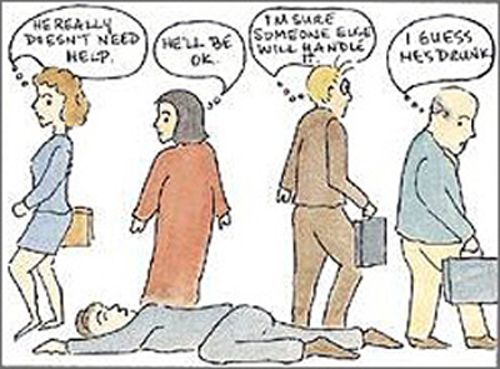Even when you are a “Healer Who Listens,” there is a time to stop listening and speak up.
King Solomon, writing under the pen name of Kohelet (Ecclesiastes), said, “There is a time to speak and a time to be silent.” Normally, this is excellent advice for doctors who have been shown in study after study to interrupt our patients after somewhere between 11 and 23 seconds after they begin speaking.
But what if you sit on the board of a health system that routinely engages in “upcharging” insurances? Employs physicians who routinely provide care that is marginal at best and unsafe at worst in order to maximize revenue? Is more interested in patient “throughput”than human input?
Last Monday I sat with the combined boards of the Jewish Healthcare Foundation and its three operating arms trying to answer exactly this question. How do healthcare boards, made up of powerful,influential, knowledgeable people in the community, suddenly become bystanders to all sorts of malfeasance by the hospitals and healthcare systems they purport to control?
You can guess at the answers. People see these appointments as ceremonial rather than hands-on. The group-think stifles dissent. Medical providers on the board don’t feel qualified to comment on financials and the finance people don’t feel qualified to comment on clinical matters. The financial bottom line is the real mission,regardless of the mission statement.
But one recurrent answer struck me: the way the whistle-blowers are ostracized. Boards maybe passive bystanders, but there’s usually one squeaky wheel that speaks up. You know the one – and you know what happens to their career afterward.
The phenomenon isn’t new. A famous story in the Talmud, which I had the opportunity to examine again this past week, tells of a new type of oven that is supposed to be constructed so that it cannot become ritually impure. The problem is that the rabbis deciding whether it meets that standard all say that it fails – except for one, Rabbi Eliezer.
Eliezer tries every line of argument he can think of to convince his colleagues that the oven does what it claims. When all logic fails, he resorts to miracles – rivers flowing backward, trees uprooting themselves, even literally bringing the house down. The other rabbis hold fast, even when a heavenly voice calls out to them, “Eliezer is right!” “It’s not up to Heaven anymore,” they say.
They don’t stop there, though. They invalidate every ruling Eliezer has ever made on ritual purity and ostracize him from the community – and the consequences are dire, both for him and for the community, eventually leading to the death of the rabbi at the head of the group (this is the part usually left out of the story when it’s told in school).
What is missing from Eliezer’s story, and what is missing on bystander boards, is a second voice. One person screaming about the evidence and the morality of a position, no matter how correct, is a nuisance and a crackpot. But as several people at the board retreat pointed out, a second – or God willing, even a third – voice, saying, “Hey, wait a minute, I think they may have a point,” changes the conversation. Are they both grandstanding? Are all three of them over the rainbow? Not as likely.
The Foundation, and particularly its Pittsburgh Regional Health Initiative arm, has made its mark in the patient safety movement. A hallmark of that movement is listening when a patient, a nurse, a surgical tech, or a doctor says, “Hold everything, something’snot right here.” Just as important is recognizing that the person calling a halt isn’t trying to sabotage the surgery or cost the hospital money – they are trying to prevent harm to a human being.
How much damage could have been prevented if one other rabbi would have said, “You know, Eliezer’s pretty smart. Maybe we should take another look at this oven?” How many lives could be saved if the next time someone states an uncomfortable truth at a hospital board meeting, someone would say, “You know, Dr. Jeremiah really knows her stuff. We need a task force to look into this problem right now?”
Healers, our job, wherever we are in the system, is to be that second voice – not a bystander, but a stand-by-her, if you will. Just like we need to avoid anchoring in our first diagnosis and ignoring the signs of some other brewing trouble, we need to avoid anchoring in the-way-we-always-do-things, or the-way-everyone-else-is-doing-things-now, and listen for signs of trouble in the system. Everyone has an interest to serve – our interest is with the people we care for.
